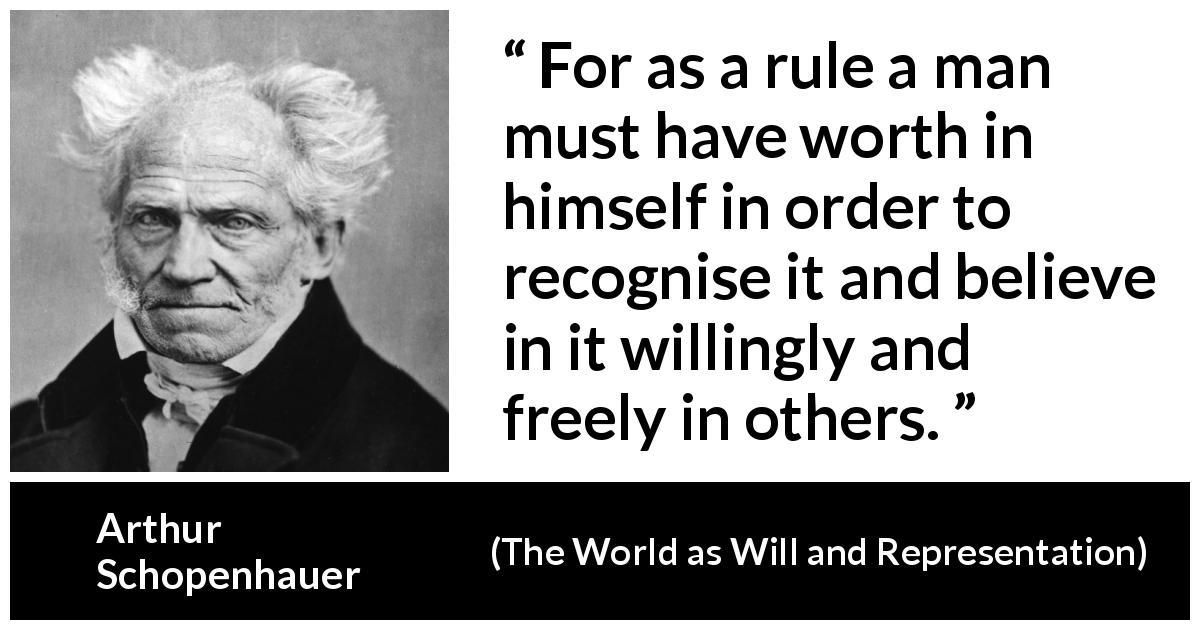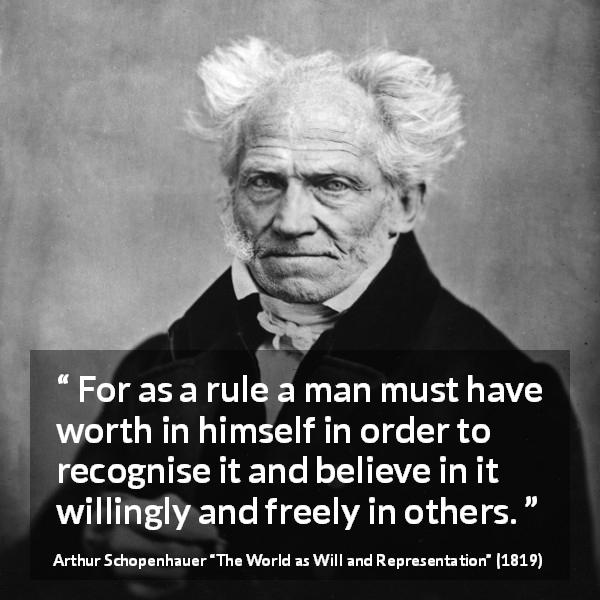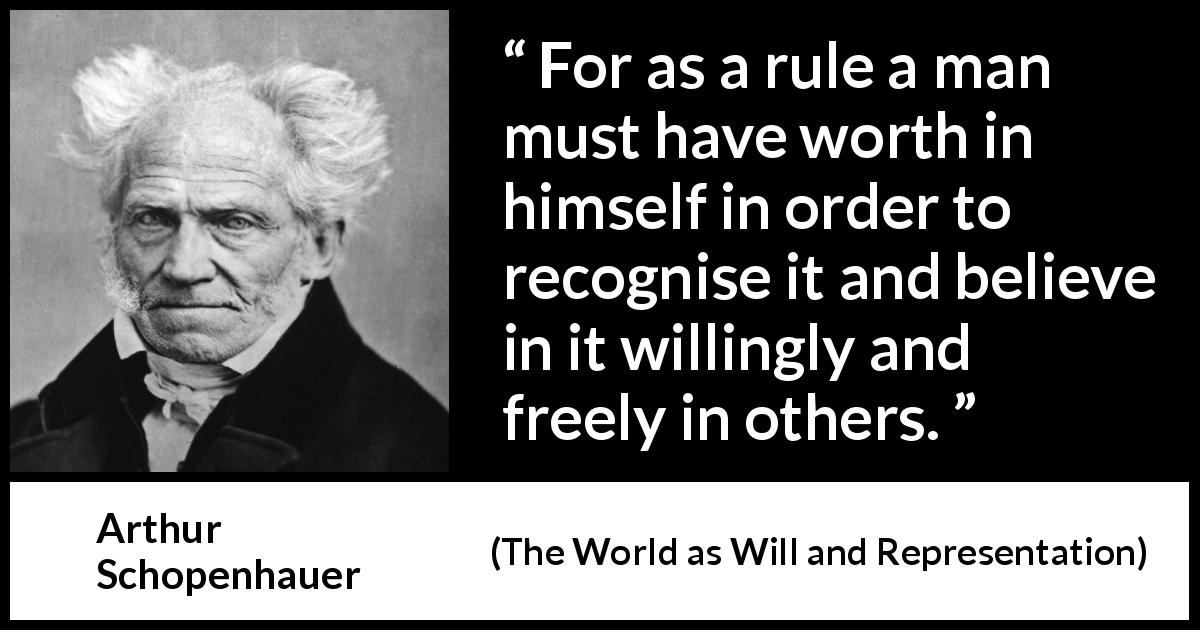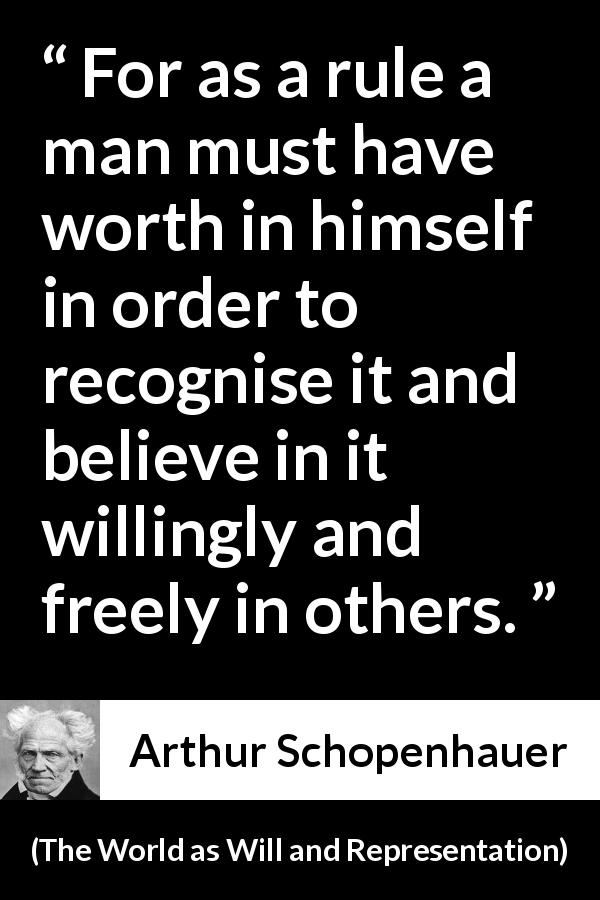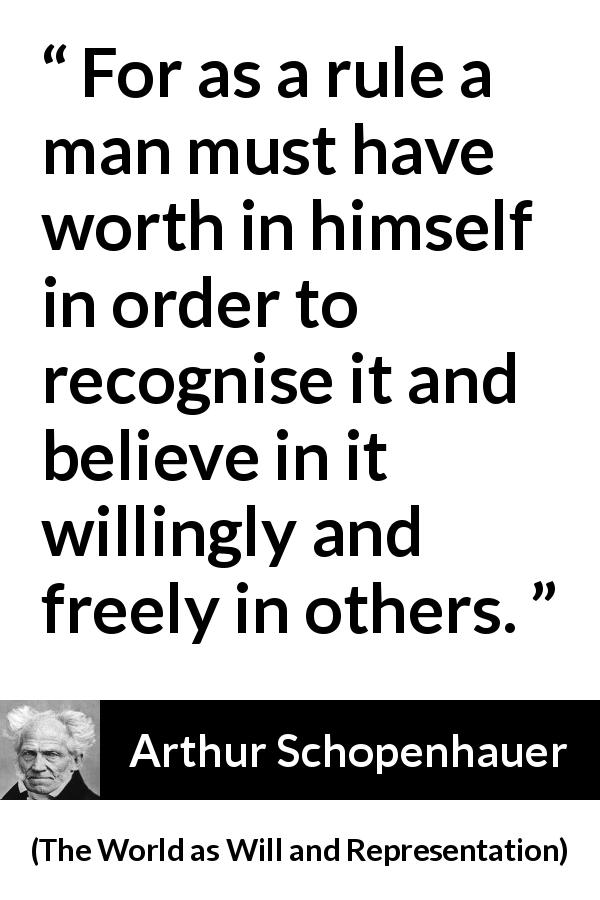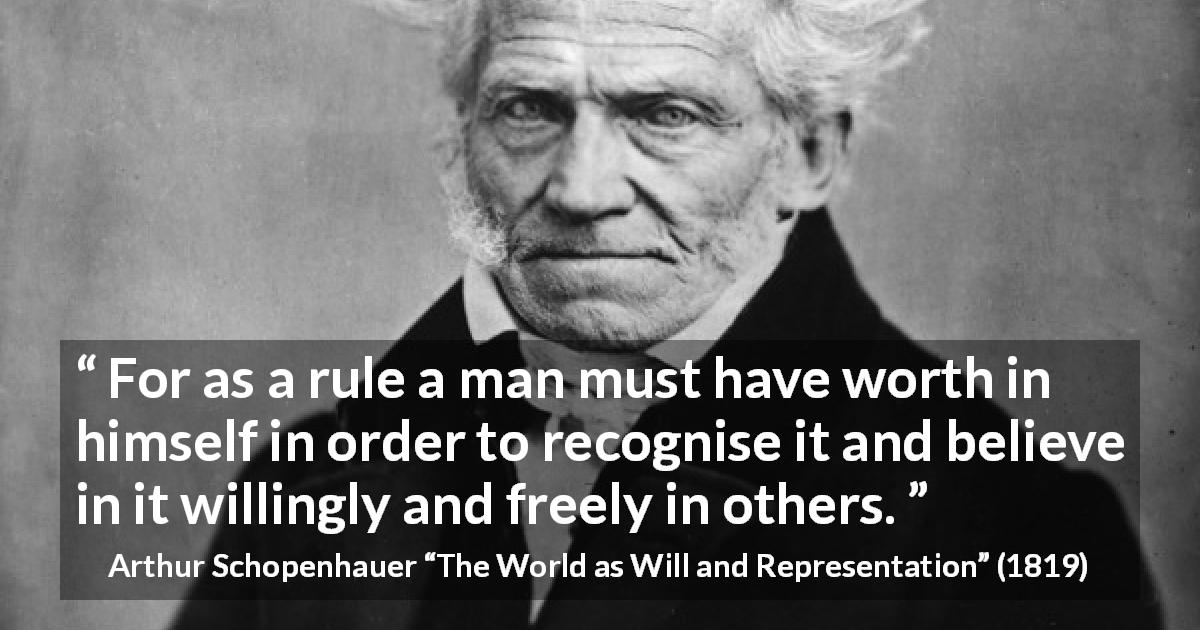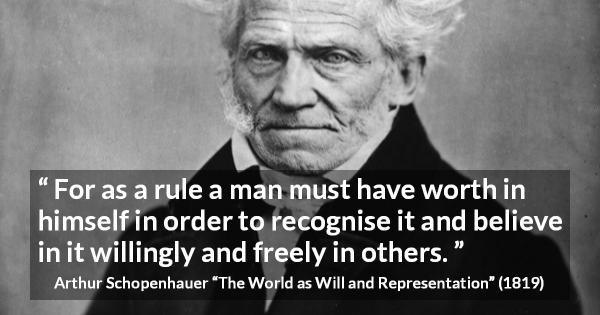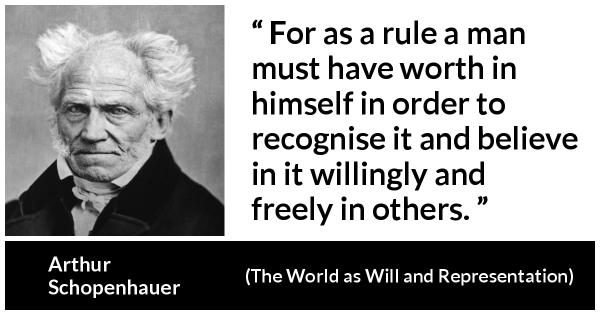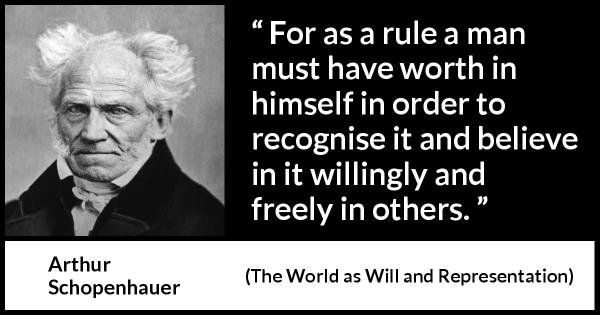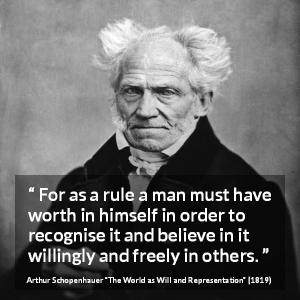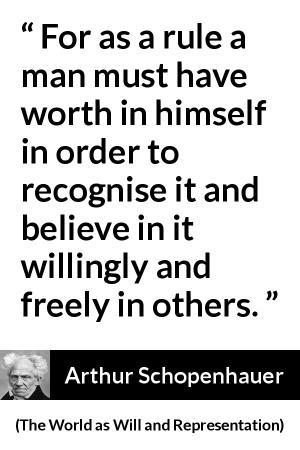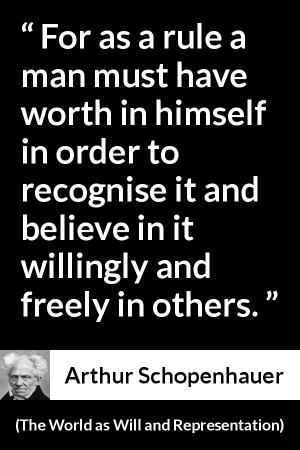“ For as a rule a man must have worth in himself in order to recognise it and believe in it willingly and freely in others. ”
Arthur Schopenhauer, The World as Will and Representation (1819). copy citation
| Author | Arthur Schopenhauer |
|---|---|
| Source | The World as Will and Representation |
| Topic | freedom recognition worth |
| Date | 1819 |
| Language | English |
| Reference | |
| Note | Translated by R. B. Haldane and J. Kemp |
| Weblink | http://www.gutenberg.org/files/38427/38427-h/38427-h.html |
Context
“It is true that even the dullest of them accept on authority recognisedly great works, lest otherwise they should argue their own incompetence; but they wait in silence, always ready to express their condemnation, as soon as they are allowed to hope that they may do so without being left [pg 303] to stand alone; and then their long-restrained hatred against all that is great and beautiful, and against the authors of it, gladly relieves itself; for such things never appealed to them, and for that very reason were humiliating to them. For as a rule a man must have worth in himself in order to recognise it and believe in it willingly and freely in others. On this rests the necessity of modesty in all merit, and the disproportionately loud praise of this virtue, which alone of all its sisters is always included in the eulogy of every one who ventures to praise any distinguished man, in order to appease and quiet the wrath of the unworthy.”
source
